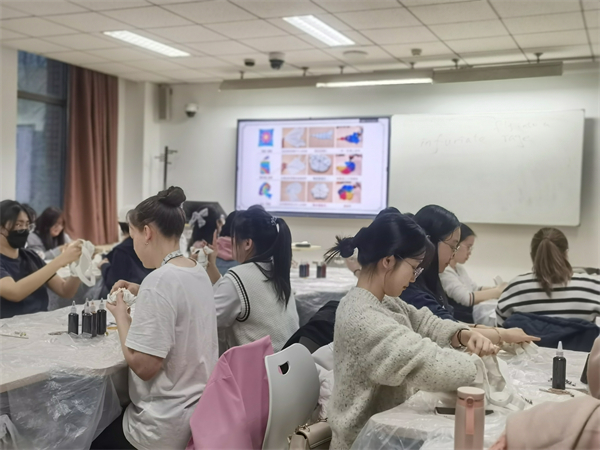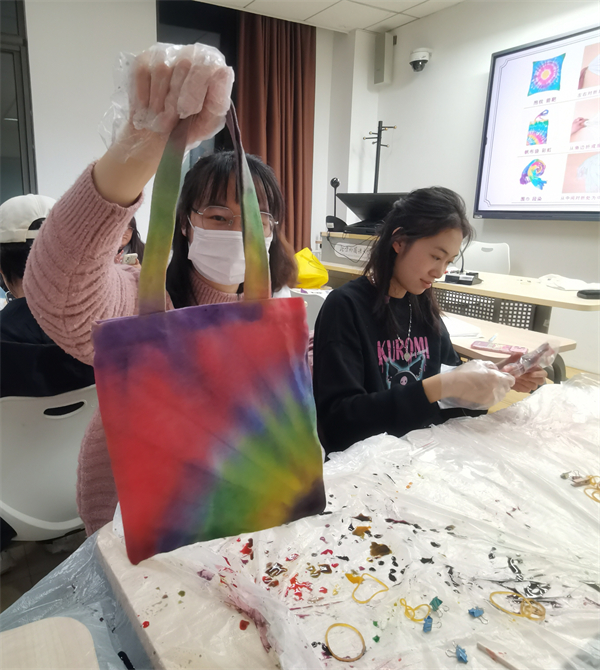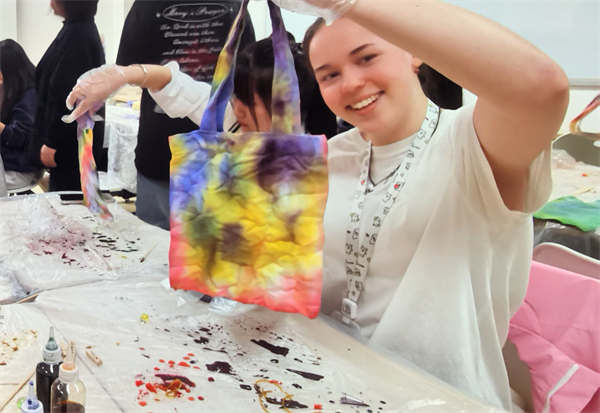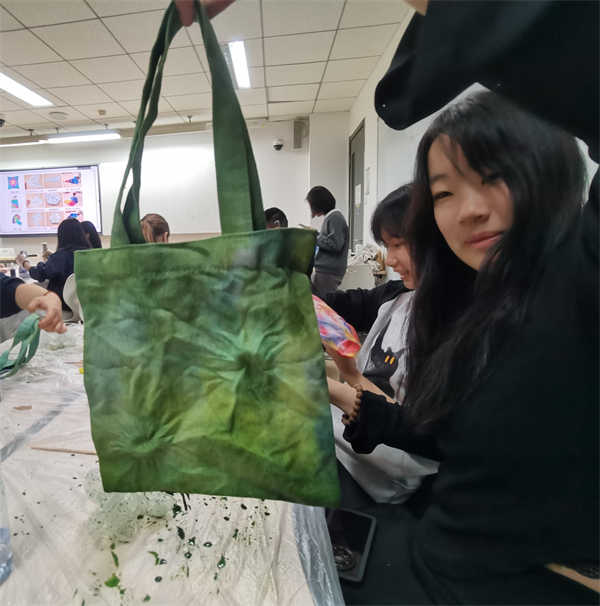- Research
- Research Centers
- Journals
- Admission
- Introduction
- Programs
- Application
- Alumni & Giving
- Alumni Club
- Giving
About 30 students from Beijing Foreign Studies University (BFSU) gathered on March 23 for a memorable on-campus event centered around the traditional Chinese art of tie-dyeing. The event was jointly organized by the university’s Students’ International Communication Association and the Miaomiaoxiu Intangible Cultural Heritage Workshop.
Under the guidance of Gao Li, an intangible cultural heritage inheritor, students learned about this ancient craft and made their unique tie-dyed canvas bags.

BFSU students participate in a tie-dyeing workshop on March 23. [Photo provided to en.bfsu.edu.cn]
The event, which saw enthusiastic participation from both local and international students, provided an opportunity for individuals to immerse themselves in the rich tapestry of Chinese culture while engaging in a hands-on artistic endeavor.



BFSU students showcase their tie-dyed canvas bags. [Photos provided to en.bfsu.edu.cn]
Viktoriia, a Russian exchange student, shared her excitement about trying tie-dye art for the first time, saying, "I've never tried tie-dyeing before, but I was thrilled to have the chance today!"
Sabina from Uzbekistan expressed her keen interest in Chinese culture and described the activity as "fantastic". For her and many others, the event served as a gateway to deeper appreciation and understanding of Chinese artistic traditions.
"I absolutely love these kinds of hands-on activities," said Aleksandra Polchlopek, a student from Poland. Her sentiment echoed that of many participants who relished the opportunity to engage in a creative pursuit that transcended cultural boundaries.
Tie-dyeing, a technique dating back centuries, involves binding or folding fabric before applying dye to create intricate patterns and designs. With its origins deeply rooted in Chinese heritage, tie-dyeing continues to captivate audiences worldwide with its blend of artistic expression and cultural significance.